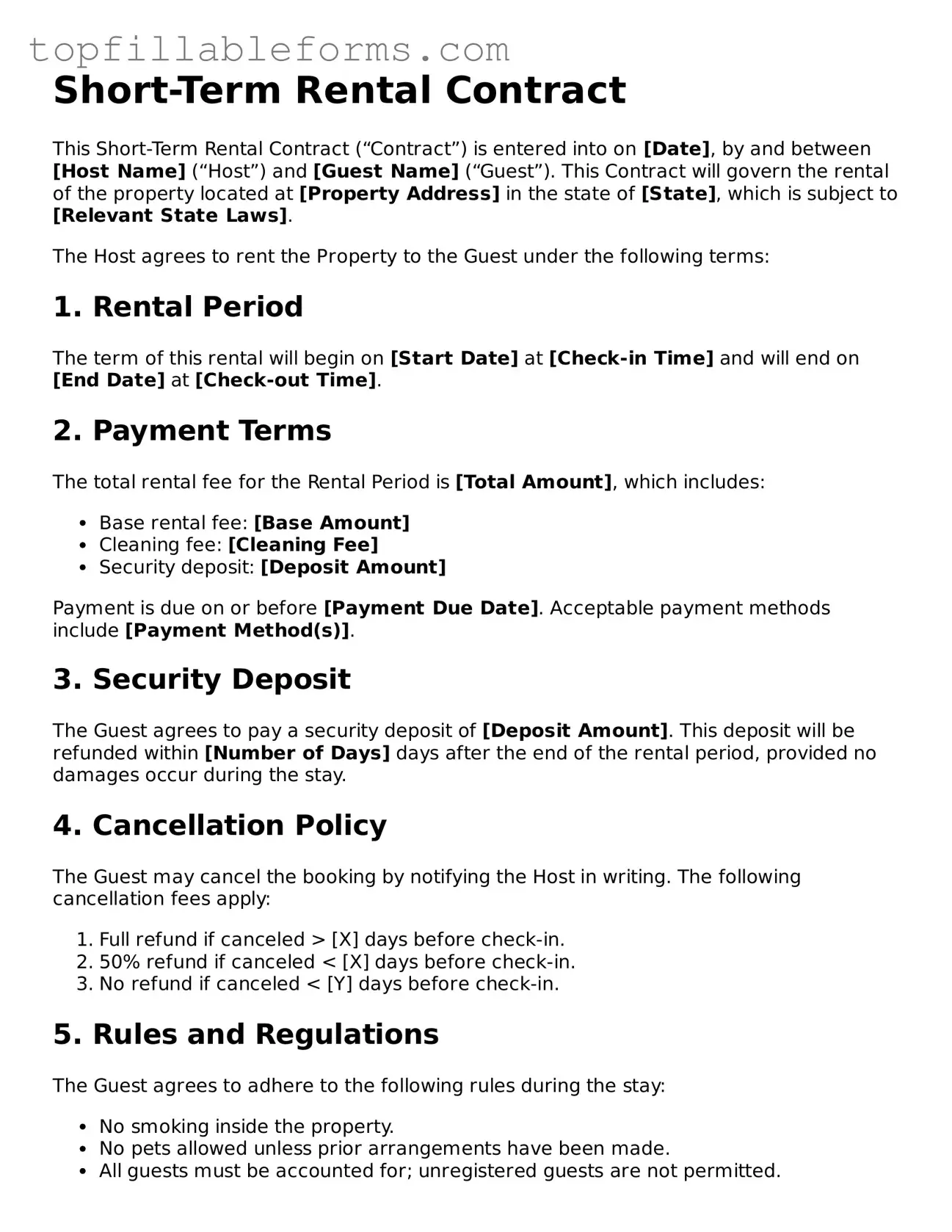Free Short-Term Rental Contract Form
The Short-Term Rental Contract is a legal document that outlines the terms and conditions for renting a property for a brief period, typically less than 30 days. This contract serves to protect both the property owner and the renter by clearly defining responsibilities, payment terms, and rules for occupancy. Understanding this form is essential for anyone involved in short-term rental transactions.
Open Short-Term Rental Contract Editor Here

Free Short-Term Rental Contract Form
Open Short-Term Rental Contract Editor Here
Finish the form now and be done
Finish your Short-Term Rental Contract online by editing, saving, and downloading fast.
Open Short-Term Rental Contract Editor Here
or
▼ PDF File
